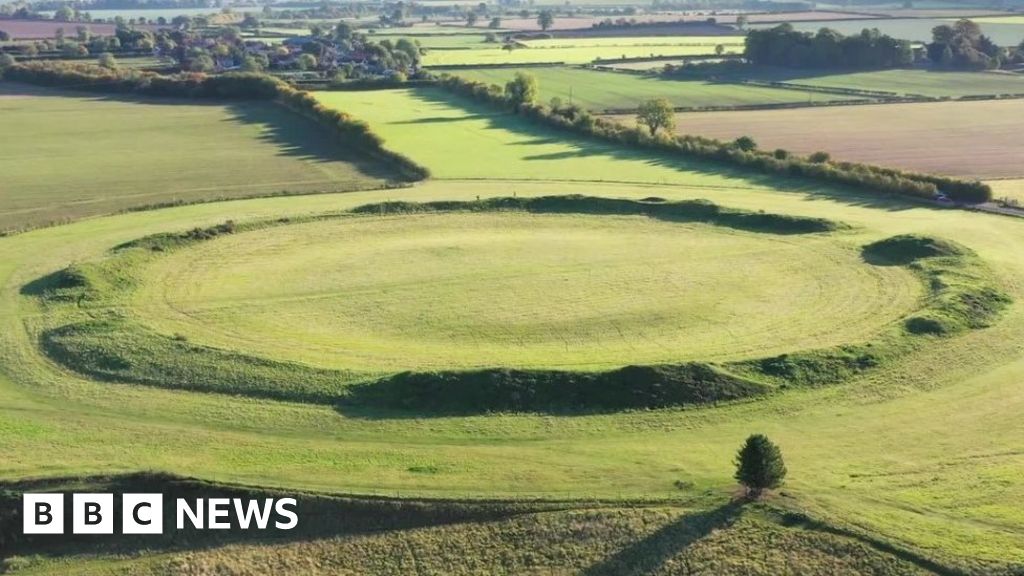- cross-posted to:
- britisharchaeology
- cross-posted to:
- britisharchaeology
About 5,000 years ago, the Thornborough Henges in what is now North Yorkshire would have dominated the surrounding landscape.
What would have been three striking white monuments, now known as the “Stonehenge of the North”, were covered in gypsum and their banks are believed to have towered up to 23ft (7m) high.
According to historians, anyone stood inside the circular earthworks in Neolithic times would only have been able to see the vast sky above them.
Cut off from the landscape and enclosed in this huge human-made arena, our ancient ancestors would have felt “centred within nature” and could even have had a “cosmic experience”, they say.
It is an experience that, in 2024, people can perhaps finally get just a taste of once again.
In February, public access to all three monuments was guaranteed when the whole complex was reunited under one owner - English Heritage - for what was believed to be the first time in 1,500 years.
…
Dr Wexler said that while the site had been “historically ignored” until the 1990s, from the viewpoint of 2024, things were very different.
The focus was now on “access and conservation work”, she said.
“With new non-invasive technology, we hope to better date the henges and work out the sequence in which they were built.”
Dr Wexler added that everyone involved was “so excited” to have the Thornborough Henges reunited and ready for people to retrace ancient footsteps.
“There is so much more to discover. They are magical,” she said.
“It is like stepping back in time.”
This is the best summary I could come up with:
Cut off from the landscape and enclosed in this huge human-made arena, our ancient ancestors would have felt “centred within nature” and could even have had a “cosmic experience”, they say.
According to Dr Jennifer Wexler, this once “historically ignored” site unlocks the mystery of the Neolithic people who built them, but who left behind no written record of their existence.
Dr Wexler, senior properties historian for English Heritage, said the earthworks contained “layers of history” which spanned thousands of years.
Mr Savage said: “The trees on the northern henge were a later addition and not part of the original concept, but they have preserved the banks and protected them from erosion.”
While the northern henge currently remains closed to the public for safety reasons, English Heritage said it hoped to reopen it in time for the summer.
Dr Wexler added that everyone involved was “so excited” to have the Thornborough Henges reunited and ready for people to retrace ancient footsteps.
The original article contains 981 words, the summary contains 161 words. Saved 84%. I’m a bot and I’m open source!



